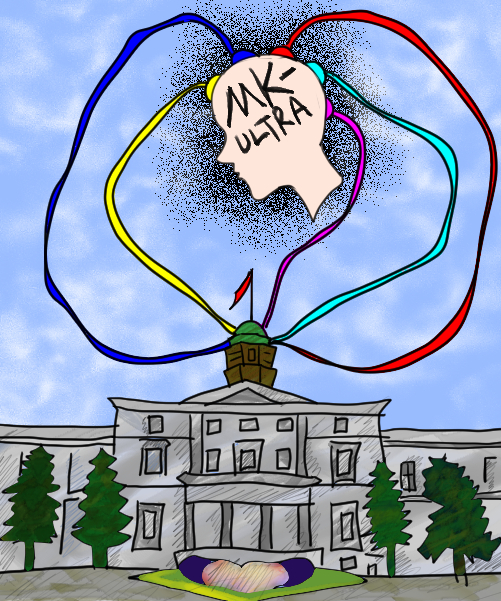McGill must reckon with the reality of MK Ultra

Between 1957 and 1964, McGill was home to a subproject of the Central Intelligence Agency’s (CIA) MK Ultra project. Under Dr. Ewen Cameron’s oversight, researchers conducted studies that subjected unwitting patients to high voltage electroshock therapy, weeks-long drug induced sleep, and large doses of Lysergic Acid Diethylamide (LSD). Survivors of the project and their families were forever changed by the lasting effects of this traumatic project and have filed class action lawsuits against provincial and federal governments, as well as McGill—the most recent of which having targeted the Allan Memorial Institute, a part of the Royal Victoria Hospital and the McGill University Health Centre. McGill’s complicity in the CIA’s violation of human rights, regardless of how long ago these atrocities occurred, is appalling. Students must advocate for the affected families and hold the university accountable for failing to release study documents to survivors. Moreover, this project demonstrates the need for medical institutions to maintain high standards and ensure that history never repeats itself.
McGill is morally obligated to rectify its wrongdoings. Survivors of the project deserve the release of all details and information at McGill’s disposal, and the university owes the survivors a public apology. This would act as the first step to make amends for such disregard of the livelihoods of the project’s survivors. Financial compensation is also necessary for the survivors in each of the class action lawsuits.
The MK Ultra project serves as a constant reminder of the power and resources that institutions like McGill possess, and the lack of accountability that often results. Students should apply pressure on the institution to disclose all the details regarding what took place during the experiments and ensure survivors are properly compensated. In particular, students in the Faculty of Law can help make McGill answer for its crimes by providing legal expertise to survivors’ families, upholding and continuing the human rights standards the faculty prides itself on. The McGill Centre for Human Rights and Legal Pluralism works to provide students, professors, and the wider Montreal community with resources to engage with the impacts of the legal system on social justice issues. Students within the Centre for Human Rights are in a unique position to lead efforts to prosecute McGill for actions that do not represent the democratic and humanitarian ideals of the law school.
McGill’s law students are not alone in this challenge. Medical students also have the responsibility of fighting for justice on the part of survivors. McGill is home to Canada’s foremost medical school, and it is critical that McGill’s medical students collaborate with law students to confront the atrocities of the MK Ultra project. McGill has abused this power in the past, and in order to continue to uphold the highest standards of ethics within the institution and among its students, it must address its wrongdoings. Facing the realities of MK Ultra is necessary to produce medical professionals that prioritize their patients’ health over gaining knowledge through unethical means.
McGill’s inaction means that students must step up to continue to voice their condemnation of the MK Ultra project and mobilize to ensure that this act of brutality will never be forgotten or repeated.
*** This article has been archived for your research. The original version from McGill Tribune can be found here ***

